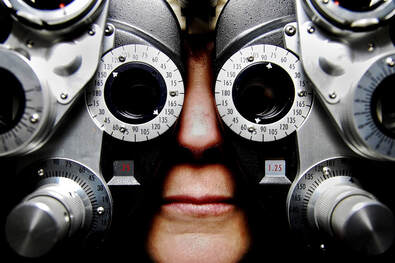 At the outset of my career, my boss told me not to feel bad when clients return a draft bathed in red. It’s part of the process, he explained. Besides, clients know their topic better than I. Even in matters of style, a writer might just learn something from a client. Like the time a mechanic suggested to me that “Cut Gas Costs” might make for a more accessible headline than “Reduce Fuel Consumption.” Still, dumb requested changes can annoy. Like the client who made me change a correct use of in behalf — yes, there really is a correct use — to on behalf. Oh well. The client was ultimately in charge, the client’s name and not mine would go on the page with the error, and few readers would even notice the misuse. That was my third-favorite dumb rewrite request. My second-favorite came in the form of, “Make it longer.” I would be happy to, I said, meaning it, but I would need to understand what was missing. “Just make it longer.” Fine, but what needed to be added? “Just make it longer.” How? Insert ellipses? Throw in redundancies? Increase font size and leading? Change every but to however, every so to therefore, and every 10,000 to ten thousand? “No; just make it longer.” The conversation ended with the client’s hanging up in frustration. I was frustrated, too. Then he found my earlier draft — the one he hadn’t read but had told me to cut down, because it was too long. “This is perfect,” he said. My all-time favorite dumb rewrite request came in the form of, “The CEO doesn’t like what you wrote. We need you to revise it.” I would be happy to revise it, I said, once again meaning it. Which parts did the CEO not like and why? The contact person didn’t know, and set off to ask the CEO. About an hour later, he called back. The CEO had misplaced my draft; would I mind resending it? I did. A day later, I learned that the CEO loved the “new draft.” For once, I had the presence of mind not to blow it. Much as I wanted to say, “Tell that moron that’s not a rewrite, it’s the original,” I said, simply, “Glad I could help.”
0 Comments
 CREATIVE WRITING teachers who tell you that similes make for good writing should add a disclaimer: Don’t go overboard. You don’t need three per page. And for heaven’s sake don’t reach too hard for them. Here are some too-hard-reached-for gems that I jotted down from what otherwise might have been a decent novel. Never mind the title or author. I’m not out to shame or embarrass, but to illustrate. “Panic gripped him like a cold iron glove.” Not having encountered many cold iron gloves a-gripping, I’m having a bit of difficulty empathizing with the grippee. And I have so many questions. Was it a giant or one-size-fits-all cold iron glove? Did it grip his entire body? His arm? His chest? His ... never mind. “The need to warn and protect her surged within his chest, but the heavy quilt, the vise across his face, and the fear in his heart pinned him like Christ to the cross.” Where to begin? First, if any Christians happened to be engrossed in the narrative, this simile would be sure to jar them right out of it. In fact, I’m not a Christian and it jarred me out of it. (I need hardly add, I hope, that jarring your reader out of your narrative is ill-advised.) Second, pinned implies couldn’t move at all, as in a wrestler pinned to a mat. Crucifixion victims were nailed by the wrists and ankles so that they could writhe, adding to their torture. Speaking of which and third, torture, not restraint, was the point of crucifixion. This is a wholly inapt simile. Not that the others are any less so. “The answer came immediately, soft but solid like an elephant appearing beneath a magician's wand.” I shall be brief: Huh? “She had found that there was something about the way flesh bounced under silk that attracted men's eyes like a fishing lure.” If the author was trying to be sensual, he would have done better to leave it at flesh and silk and omit the fishing lure. I cannot speak for you, but for me the mental picture of a fishhook anywhere near a human eye is an arousal-killer. Also, gliding might work better than bouncing. The book brims with equally awful similes, but I’ll stop here. You’re welcome.  Earlier this year, I picked up new glasses. I was due for a slightly stronger prescription, and I was tired of seeing the world through scratches. But within two days, I had begun seeing double at certain distances. Convinced that something was wrong with the prescription, I returned to the ophthalmologist. In an uncharacteristic show of foresight, I brought along my old glasses. Guess what. I saw double through them, too. Which meant that the new prescription wasn’t the problem. If you think the odds were slim that I’d start seeing double for an unrelated reason at exactly the same time I happened to pick up new glasses, you’re right. But here’s the thing about odds. Even when you calculate them at a million-to-one against, you’re not declaring an impossibility. You’re declaring a likelihood—about once for every one million tries. A lot of people will have eye problems. A lot of people will buy glasses. Sooner or later and probably more often than one might think, those circles will overlap. Sooner or later albeit less frequently, they will overlap with your circle of acquaintances. And it can make the perfectly ordinary look extraordinary. Never mistake the statistically unlikely for the miraculous. I’m fine, thank you very much. A new lens did the trick. |
Welcome to Cunoblog... where I share thoughts about writing. I don’t consider myself a writing authority, but that doesn’t keep me from presuming to blog like one. Oh, and I reserve the right to digress when I feel like it. Archives
July 2024
|

 RSS Feed
RSS Feed